Working with the United Nations
Working with the United Nations
Members of the Parenting and Families Research Group have a well-established collaboration with the Prevention Branch of the United Nations Office on Drugs and Crime (UNODC). The UNODC global prevention programme supports the UN Sustainable Development Goals. Rachel Calam was an advisor on the UNODC/WHO International Standards for Drug Use Prevention. https://www.unodc.org/unodc/en/prevention/prevention-standards.html
She and Aala El-Khani collaborate with UNODC on the development and evaluation of group programmes designed to strengthen family skills amongst those living in low and middle income countries, including low resource settings, internal displacement, conflict/post-conflict situations and refugee contexts. These include Strong Families, for families in challenged and low resource settings, and Family UNited, a universal programme for low and middle income countries.
1 Consultation and Expert Meetings
Rachel Calam has acted as a technical expert and consultant and has presented at multiple initiatives with the United Nations Office on Drugs and Crime (UNODC), including the first and second editions of the International Standards for Drug Use Prevention. She has visited Iran, Indonesia, Panama and Tajikistan on projects.
Aala El-Khani has been working as a consultant for the United Nations Office on Drugs and Crime (UNODC) since 2016. She supports the global development of family skills resources, training and research evaluation of programmes in conflict and low resource settings. She has led trainings in Serbia, Sri Lanka, India, Senegal, Cote d’Ivoire, Uzbekistan, Philippines and Indonesia. She has presented to United Nations commissions. Her current work collaborates the efforts of the UNODC and The University of Manchester in developing and evaluating family skills programmes.
Multilevel Parenting Package for Life Skills Promotion in Challenged and Humanitarian Settingsns>by Dr Aala El-Khani and Dr Wadih Maalouf for a Save the Children event.(Link coming soon)
2. Strong Families
Over the past two years Professor Rachel Calam and Dr Aala El-Khani have been working with the United Nations Office on Drugs and Crime (UNODC) and an international group of experts to develop a preventive family skills programme for families of children aged 8-14 in challenging, very low-income settings. The programme, Strong Families, includes three parent sessions, two child sessions and two family sessions. The programme aims to build skills and resources to enhance coping and resilience, and reduce vulnerabilities, including youth violence and child maltreatment. The parent skills included are similar to those in the leaflets designed for families in conflict and displacement and TRT Plus Parenting components. Aala El-Khani has led training in Serbia, Sri Lanka, India, Senegal, Cote d’Ivoire, Uzbekistan, Philippines and Indonesia. So far the programme has been evaluated in Afghanistan and Serbia, with two publications in progress. Pilots are also running in Zanzibar, Uzbekistan, the Dominican Republic and the Philippines. The programme is being rolled out jointly between UNODC and UNICEF in Uzbekistan.
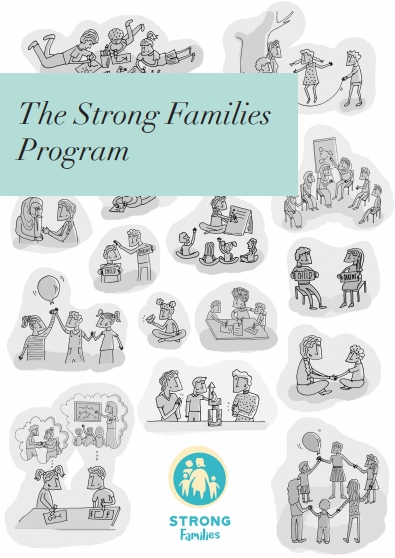
The front cover of the Strong Families manual
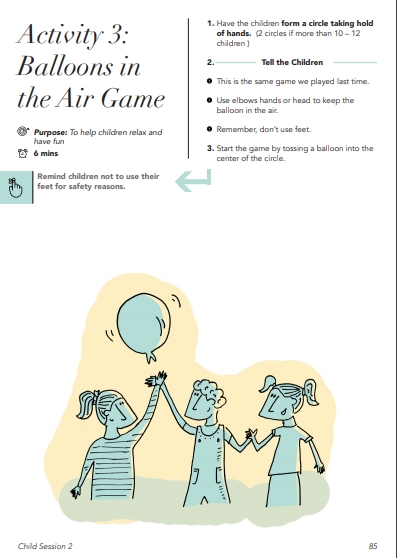
Inside the Strong Families manual
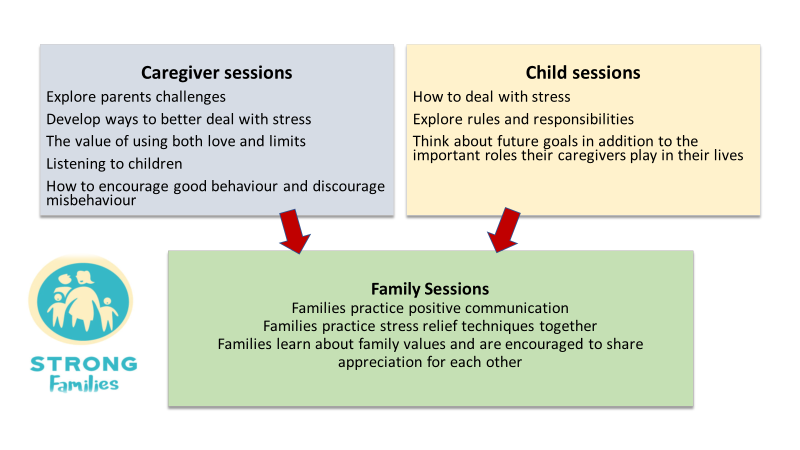
Image illustrating the content and structure of the Strong Families programme
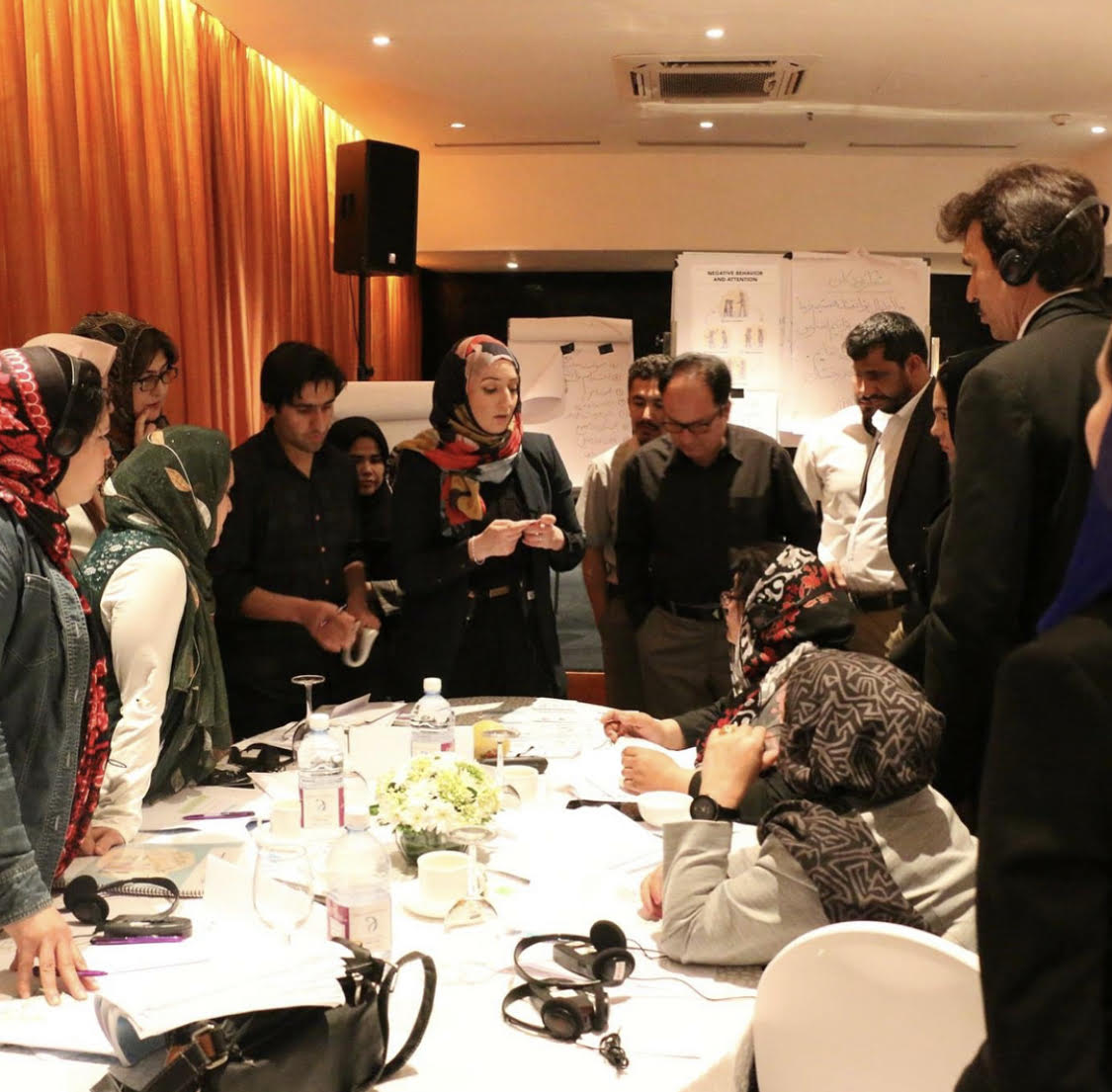
Dr El-Khani conducting Strong Families training in Sri Lanka
3-Family UNited
Familiy UNited is a family skills programme developed by an expert group, including Rachel Calam and Aala El-Khani, working with the United Nations Office on Drugs and Crime (UNODC). It is designed as a universal programme for low and middle income countries. The aim is to increase resilience and reduce vulnerability in children aged 8 to 14 through addressing known risk factors. Violence reduction and avoidance of substance misuse are key long term intended outcomes. It is designed to be delivered over four weeks, with parallel child and caregiver sessions plus a combined family session each week. The child sessions focus on: building positive qualities; handling stress; resisting peer pressure, and ways of identifying good friends. The caregiver sessions share material with Strong Families and include understanding, praising and encouraging children; changing challenging behaviour; reducing undesirable behaviour; reducing aggressive behaviour and taking care of yourself. The family sessions include focus on positive qualities of the family, learning about each other; family values and communication; understanding peer pressure, and enhancing family connections. The programme has had initial feasibility testing in Indonesia and Bangladesh, with adaptations and research studies following on.
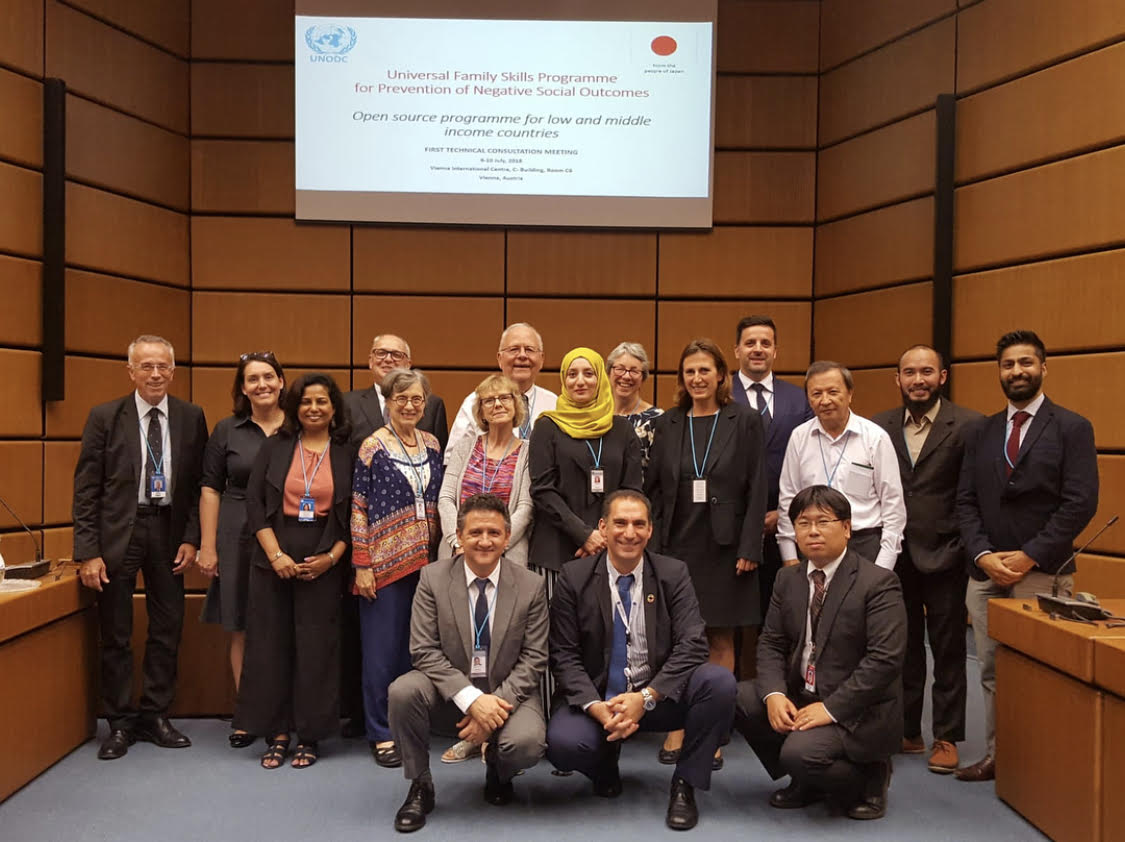
Caption: Professor Rachel Calam and Dr Aala El-Khani at the United Nations in Vienna taking part in an expert group meeting on the development of Family UNited.
.jpg)
Caption: Professor Rachel Calam and Dr Aala El-Khani in Jakarta with fellow co-trainers and participants from Bangladesh and Indonesia attending Family UNited training
